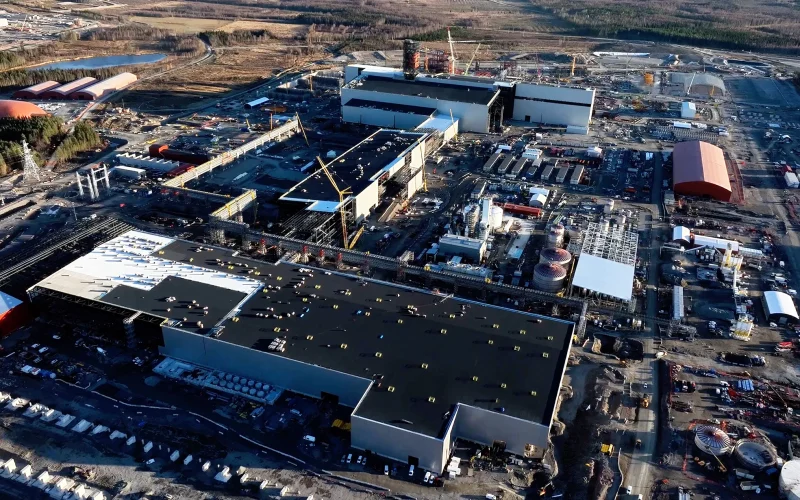Sweden has awarded 390 million crowns ($ 40.8 million) to green steel start-up Stegra, offering a crucial boost as the company races to secure the remaining financing needed to complete its hydrogen-powered steel plant in the country’s north.
The Swedish Energy Agency, announcing the grant on Wednesday, said the project had “good potential to accelerate the transition in the iron and steel industry.” It added that the funding would strengthen Stegra’s prospects of attracting the additional capital required to finish construction.
Stegra — which last year secured €6.5 billion ($7.5 billion) through loans and equity — revealed in October that it was seeking up to $1.1 billion more to finalise the facility. The plant aims to produce fossil-free steel using hydrogen generated on-site from renewable electricity.
However, the agency stressed the funding is conditional, requiring the company to prove by spring 2026 that it has secured sufficient capital to complete the project.
Sweden is among Europe’s frontrunners in shifting heavy industry away from fossil fuels, supported by abundant low-cost, carbon-free electricity. But its green transition is not without setbacks — including the recent bankruptcy of flagship battery maker Northvolt — increasing scrutiny of major industrial transformation projects.
Stegra CEO Henrik Henriksson said earlier this month that the company had raised roughly half of the remaining funds, expressing confidence that banks would provide the rest within six months. Additional government support would send a “strong signal” to lenders and investors, he noted.
Stegra previously received 1.2 billion crowns ($125 million) as part of a Sweden–EU support package, though a further 1.6 billion crowns ($166 million) was withheld. The company reapplied to the Swedish Energy Agency for the remaining funds but has only secured part of the requested amount.
“Although there is a gap to what the government requested and received EU approval for, we can now take the next step together with the financiers,” the company said in written comments to Reuters. “This levels the playing field somewhat in relation to other projects in Sweden and the rest of Europe.”





















